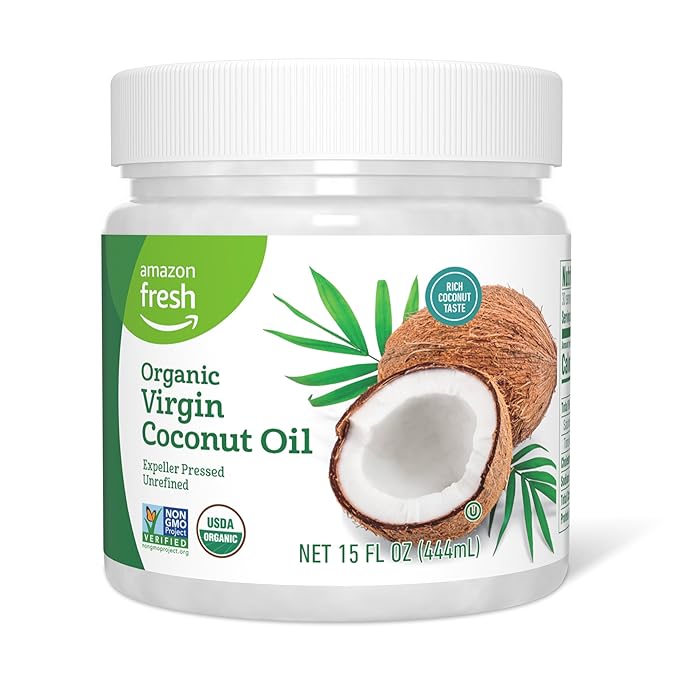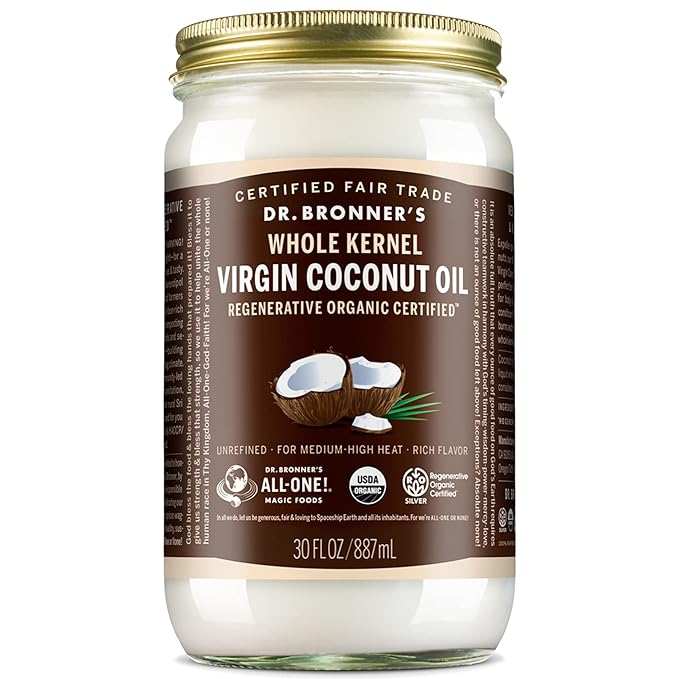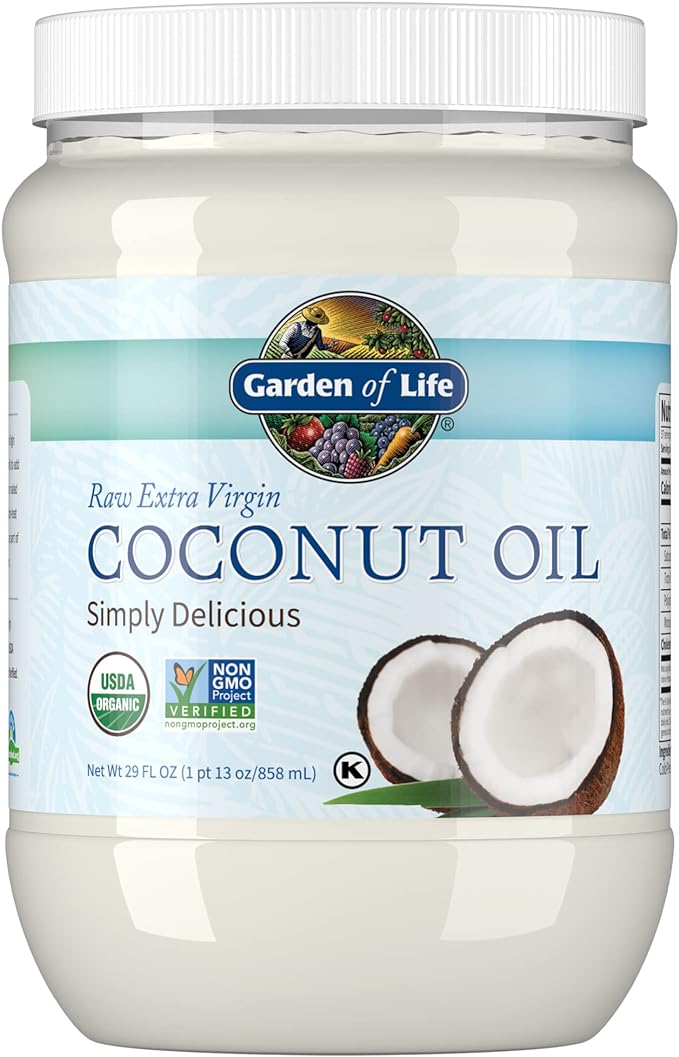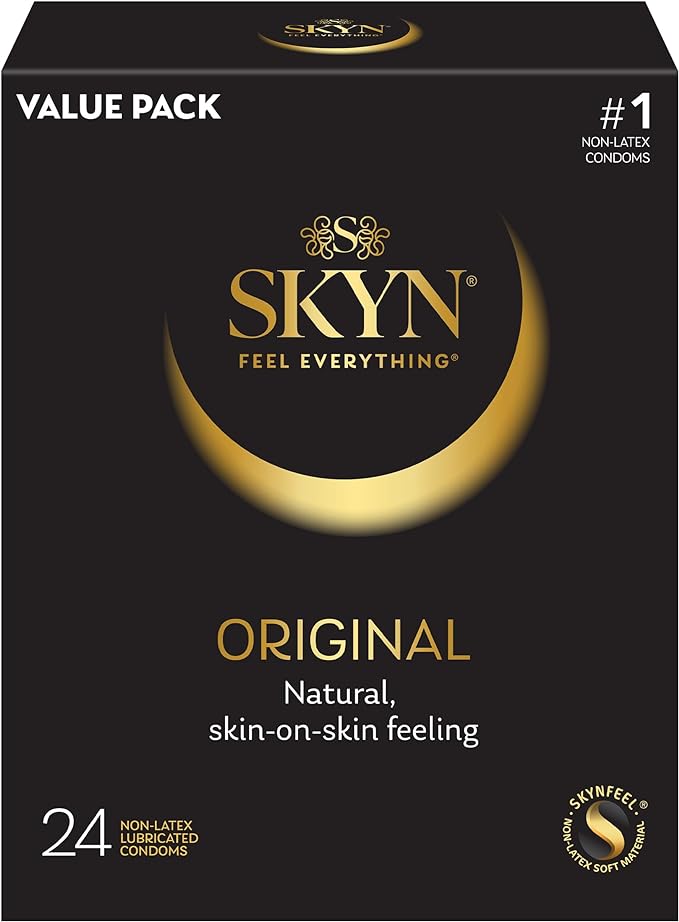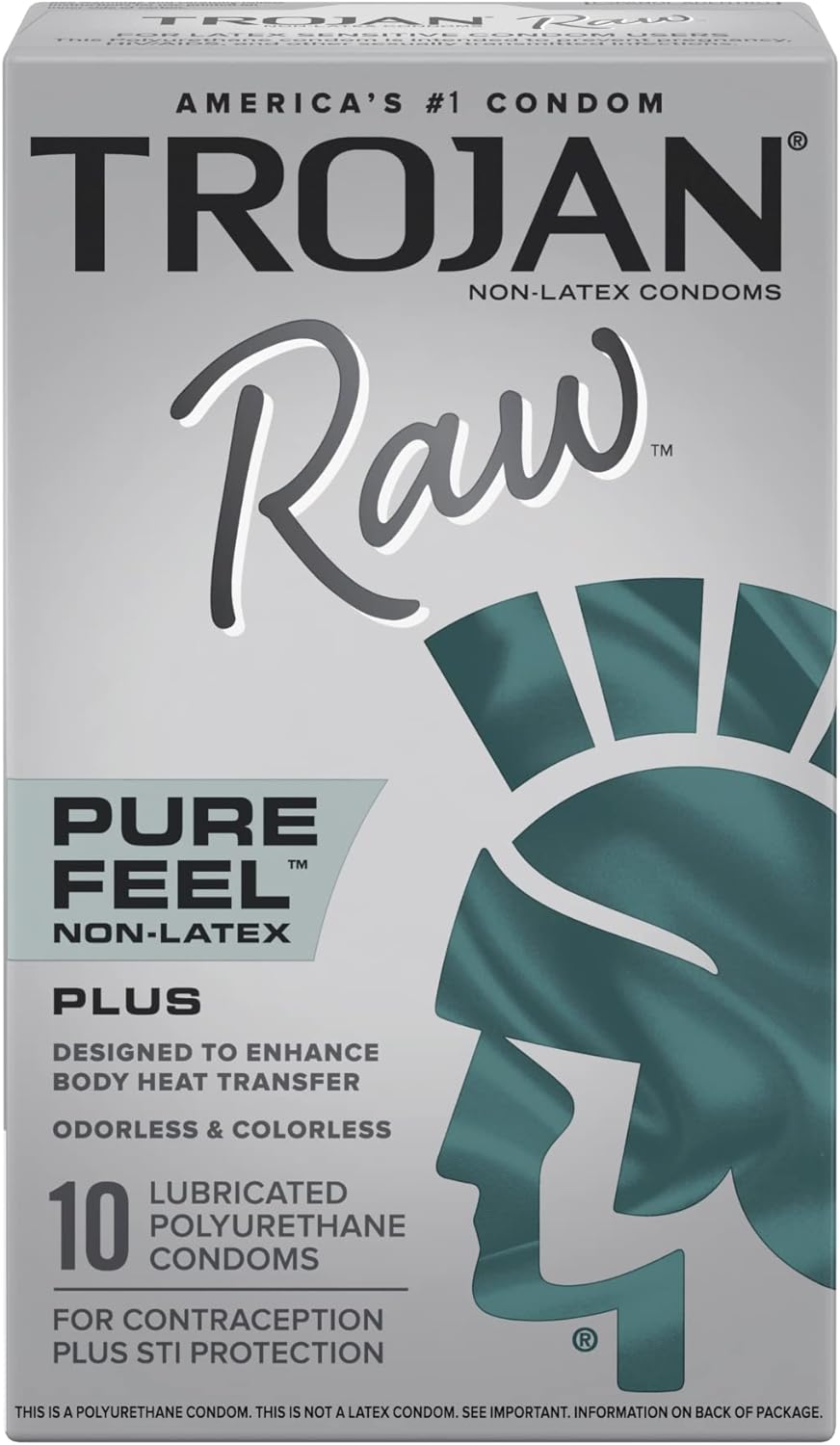Yes, It’s Typically Safe To Use Coconut Oil as Lube—But There’s A Catch
Whether you’re grabbing ice for temperature play, filling a glass for post-sex rehydration, or getting a spatula or wooden spoon for a DIY impact toy, there are no shortage of reasons you might make a pit-stop in the kitchen before making your way to the bedroom. Well, there's one more pantry staple you may want to corral for the sake of better coitus, too: coconut oil, as lube.
Turns out coconut oil doesn't just have hair, skin, and nail benefits, it has sexual benefits, too. When you use coconut oil as lube, “it can help limit unwanted genital friction, reduce the incidence of tears and breaks in the genital skin, and decrease risk of infection,” says Kecia Gaither, MD, MPH, FACOG, double board-certified OB/GYN and director of perinatal services at NYC Health + Hospitals/Lincoln. There’s a reason why this lubricant option is beloved amongst pleasure-seekers who prefer to keep their nookie au natural, as well as minimalists who prefer to purchase products that can multitask.
"Coconut oil is a great and safe lubrication option that has been proven to be an effective alternative to water or silicone." —Jill Krapf, MD, gynecologist
But you can’t always use straight-from-the-grocery-store coconut oil as lube and call it a day. There are some pleasure-seekers—such as those who rely on condoms and those prone to infection—who would be better served using an alternative.
- Jill Krapf, MD, board-certified OB/GYN and founder of the Center for Vulvovaginal Disorders Florida
- Jolene Brighten, ND, naturopathic physician and women’s health expert
- Kecia Gaither, MD, MPH, MS/MBA, double-board-certified physician in obstetrics and gynecology
- Lisa Finn, sex educator and brand manager at Babeland
- Michael Ingber, MD, board-certified urologist and female pelvic medicine specialist
- Monte R. Swarup, MD, board-certified OB/GYN and founder of HPV HUB
Ahead, everything you need to know about using coconut oil for lube, including who it is safe and unsafe for, and how it compares to other store-bought lubricants out there.
- 01Is it safe to use coconut oil as lube?
- 02What are the benefits of using coconut oil as lube?
- 03Is coconut oil okay to put on your vagina?
- 04What kind of coconut oil should you use for lube?
- 05What are the risks of using coconut oil as lube?
- 06What is the safest oil to use as lube?
- 07What lube do gynecologists recommend?
- 08The bottom line
{{post.sponsorText}}
Is it safe to use coconut oil as lube?
Don’t hate the messenger, but the short answer is that it is sometimes safe to use coconut oil as lube.
“Coconut oil is a hydrating lubricant that can help alleviate any internal dryness and increase comfort,” says Jill Krapf, MD, a leading vulvovaginal specialist and medical advisor to vaginal care platform Evvy. “It also has a smell and taste that many find appealing,” she says. Aside from its hydration factor, its other natural properties—slippery, versatile, and free of additives—also make it a natural stand-in for lube. (There are more potential benefits to using coconut oil as lube; we’ll get to those shortly!)
However, there are some situations in which people should not use coconut oil as lube. For one thing, the pH of coconut oil can be slightly higher than that of the vaginal canal, says Michael Ingber, MD, a board-certified urologist and female pelvic medicine specialist with The Center for Specialized Women's Health in New Jersey. As such, it can alter the bacteria inside the vaginal canal, putting you at increased risk for irritation and infection, he says. So, while coconut oil is generally well-tolerated, people prone to yeast and bacterial infections probably shouldn’t use the lubricant internally. (Thankfully, there are lots of other lube options for people prone to infections.)
It’s also unsafe to use coconut oil lubricant with latex condoms or barriers, says Monte Swarup, MD, FACOG, a board-certified OB/GYN in Chandler, Arizona and founder of the leading HPV information site HPV HUB. Any oil, including coconut, degrades latex. “Using coconut oil lubrication with latex barriers can cause the barrier to break and rip,” Dr. Swarup explains, making the condom less effective at preventing unwanted pregnancy or sexually transmitted infection (STI).
As such, coconut oil lubricant should only be used when you are using non-latex polyurethane barriers, or fluid-bonded with your partner, says sex educator Lisa Finn with sex-toy emporium Babeland.
Lastly, it should be obvious but: People who are allergic to coconut should not use coconut oil (or any other products that contain coconut) as lube.
What are the benefits of using coconut oil as lube?
The benefits of using coconut oil as a lubricant are much the same as using any kind of body-safe lubricant: it reduces friction, hydrates body tissue, and makes sex safer and more pleasurable.
Broadly speaking, it is both safer and more pleasurable to use lubricant during sex than to forgo it altogether, according to Finn.
“Using a store-bought lubricant is an easy, super convenient way to minimize [that] excess friction during sexual activity,” agrees Dr. Krapf. “By reducing friction, lube can also help prevent tears, abrasions, or micro-injuries that can occur to the sensitive genital or anal tissues during sex—especially during vigorous or long-lasting sex,” she says.
Sustaining these kinds of injuries makes you more likely to contract a STI, as well as other types of infections like yeast infections and bacterial infection, says Dr. Gaither. In the event that you’re having anal sex, these kinds of micro-injuries also put you at increased risk for peach-related issues like hemorrhoids and anal fissures, says Finn. As such, using coconut oil lubricant is also thought to reduce risk of STI and injury (in tandem with other safe sex practices).
Using store-bought lubrication also helps increase the duration of sex, says Dr. Krapf. After all, when you don’t have to tap out of sex due to feeling of rawness, you can go even longer, she says.
Another benefit of oil-based lubricants like coconut oil: They tend to last longer than water-based lubricants, says Finn. “The body absorbs water-based lubricants faster than it does other lubricants, and thus you’ll need to re-apply water-based lubricants more often than alternatives.” And unlike silicone lubricants, oil-based lubricants can be used with silicone-based toys.
One of the benefits specific to coconut oil is just how natural it is, says Dr. Ingber. Coconut oil usually contains just one ingredient: coconuts. “Other lubricants, on the flipside, often contain parabens, glycerin, alcohol, PABA, and fragrances that are typically not safe for internal use,” he says. Glycerin is a sugar that can disrupt the vaginal microbiome1, while alcohol is drying and can irritate the tender tissues, and other additives such as fragrance and dyes can cause irritation, he says.
People with vaginal dryness (such as folks who are peri- or postmenopausal) might also like to use coconut oil as lube since it can work over time to moisturize the vaginal and anal walls and tissues, says Dr. Gaither. It can be a worthy option when alternatives like estrogen or vaginal suppositories are contraindicated or otherwise not accessible, she says.
Is coconut oil okay to put on your vagina?
Coconut oil is generally well-tolerated internally by most people , says Dr. Krapf. That said, there is still the risk that it could disrupt the vaginal flora. “As with the introduction of any new substance vaginally, coconut oil can alter the pH levels of the vaginal microbiome and increase the risk of bacterial vaginosis or yeast infections in people who are prone to them,” she says.
Luckily, peeps prone to vaginal infections can typically still use coconut oil as lubrication during vulva-only, external play, such as clitoral stimulation with fingers or toys, says Dr. Krapf. They may also be able to use coconut oil anally, according to Dr. Swarup, who says the product is not likely to disrupt the anal microbiome. (But if you are allergic to coconut or have other skin sensitivities, you should probably skip it and try lube for sensitive skin instead.)
What kind of coconut oil should you use for lube?
To ensure it’s safe for your body, the only kind of coconut oil you should use for lubricant is unrefined (or virgin) and free of additives, says Dr. Swarup.
Unlike refined coconut oil (which is processed to ensure a higher smoke point and might contain additives), unrefined coconut oil is created *without* extreme temperatures or additives. As such, it is less likely to contain potential irritants, explains Dr. Krapf. Unrefined coconut oil—sometimes sold as virgin coconut oil—is also free from the The Big Three ingredients you should keep far away from your vagina: glycerin, glycol, and added fragrance.
Don’t feel like hunting the grocery store shelves? Dr. Krapf suggests the below options from Amazon.
What are the risks of using coconut oil as lube?
As mentioned earlier, the main risk of using coconut oil as lube is that it might disrupt the vaginal microbiome and cause yeast infections or other issues for people prone to these issues, says naturopathic physician Jolene Brighten, ND. "However, it's important to note that we don't have studies showing this is definitively true and some [people] report that they have experienced less yeast infections since using [coconut oil as lube],” she says.
If you are using coconut oil as a lubricant and rubbers are your primary birth control method, it’s important to opt for ones made from polyurethane, like the below.
Best condoms safe for oil-based lubricant
What is the safest oil to use as lube?
Coconut oil is the safest oil to use as lube, says Dr. Krapf. “Coconut oil is a great and safe lubrication option that has been proven to be an effective alternative to water or silicone,” she says.
If for some reason you can’t use coconut oil, Dr. Ingber recommended against using other kitchen oils (such as olive oil and ghee) as lubricant as they are very thick, can clog your pores, and slow down the release of discharge from the body—putting you at increased risk for infection. Baby oil, mineral oils, petroleum jelly, vegetable oils, and canola oils should also be avoided as they will interfere with the natural cleaning mechanisms of the vagina, he adds.
The bottom line
Coconut oil isn’t just a safe sexual lubricant choice for most pleasure-seekers— but a good lube option, given how slippery, long-lasting, and cost-effective it is.
Folks should opt for a water- or silicone-based lubricant over coconut oil if they are prone to vaginal infections, have sensitive skin, or are relying on latex barriers to protect against unwanted STI transmission or pregnancy.
At the end of the day, whether you use coconut oil or a coconut oil-based lube as your go-to lube, is your own prerogative! But given that store-bought lubricant helps reduce risk of sex-related injury and improve overall pleasure, it’s important you find some kind of slippery stuff to squirt into your scene or not. In this case, it is true that wetter really is better.
- Hung, Kristin J et al. “Effect of commercial vaginal products on the growth of uropathogenic and commensal vaginal bacteria.” Scientific reports vol. 10,1 7625. 6 May. 2020, doi:10.1038/s41598-020-63652-x
Loading More Posts...
